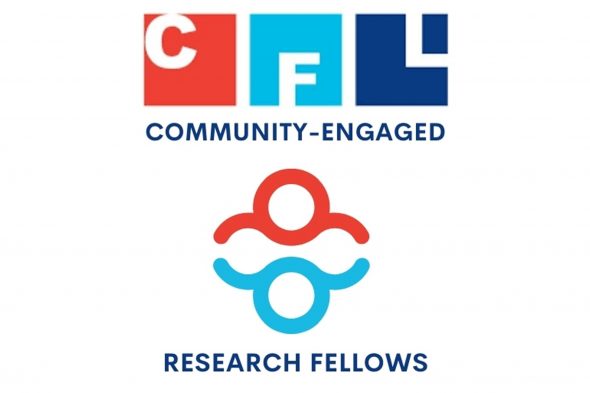New Center for Literacy fellowship focuses on engaging community
The University of Illinois Chicago’s Center for Literacy is announcing a graduate fellowship program focused on reimagining and transforming community research methods using data and research in ways that meaningfully support the needs and interests of community members.
The community-engaged research fellowship will shift from a university research model of taking information from the community without reciprocal support, to a model that partners with communities. The fellowship will serve as an interdisciplinary program for PhD students in the UIC College of Education seeking to develop their research focus and experience in community-engaged research methodology.
“We want to make sure that the research we do is asking questions that the participants are interested in and giving back to the communities,” said Andrea Vaughan, visiting assistant director of research.
Center for Literacy Director Kira Baker-Doyle said the fellowship will build on the group’s work with graduate students. Historically, graduate students either worked in direct service as instructors or at the university as research assistants. The community-engaged research fellowship would unify these efforts so that fellows would engage in both direct service work and research work.
“We are really envisioning this as a fusion,” Baker-Doyle said. “This is an effort to apply what we believe is important to do as researchers and usher in a new generation of scholars who are going to be skilled in this work.”
The fellowship is designed as an 18-month program that will begin with a pilot group of four scholars this spring semester. The scholars will undergo workshops where they will learn about the Center for Literacy’s decades-long work with Chicago’s Department of Family and Support Services as well as Head Start programs.
After undergoing workshops and networking with community members involved in the center’s various efforts, the scholars will work “on the ground” in the communities served by the center, learning about the needs of the community. During the last phase of the fellowship, the scholars will put that knowledge into practice as they work with instructors and support staff in the center to develop their own research.
Part of that effort will entail becoming mentors and leaders to subsequent fellowship recipients and will include giving presentations, organizing conferences and publishing papers showing what they have learned, Vaughan said.
“They are going to be participatory, action-oriented researchers doing work that is meaningful and that is responsible to the questions and needs of the folks in the community and in our programs,” Baker-Doyle said.
The center is in the process of selecting its first cohort of fellows who will begin in January and continue their work through spring 2023. While the first cohort will be limited to four scholars, the anticipation is that the size of the cohorts will increase as the fellowship continues. They credited Kathryn Chval, the dean of the College of Education, for her efforts to support the initiative.
In addition to financial compensation, the fellows will receive training on research methods, learn how to prepare manuscripts for publication and proposals for conferences, and be provided networking opportunities with other scholars.
“Our hope is that they will publish and will present and have opportunities to be leaders in the College of Education,” Baker-Doyle said. “It will really give them a leg up in terms of the next steps in their academic careers.”
In exchange, the center will gain from the work of individuals who are interested in connecting research and practice and advancing these efforts to fully engage with the community, Vaughan and Baker-Doyle said.
“We get people who bring in new perspectives to our programs and are able to work closely with our programming staff in the field to help us identify key problems of practice and bring key questions we want to answer through research,” Vaughan said.
The UIC Center For Literacy has helped Chicago families achieve their educational goals by offering multigenerational family literacy support services, building pipelines to future education and employment, and contributing significantly to public policy and scholarship in literacy education. The center takes a strengths-based approach to address systemic inequalities by using culturally sustaining literacy education as a means to empower families to connect with each other and community resources to achieve their educational goals. In 2020, the center worked with over 5,000 families throughout the city.

